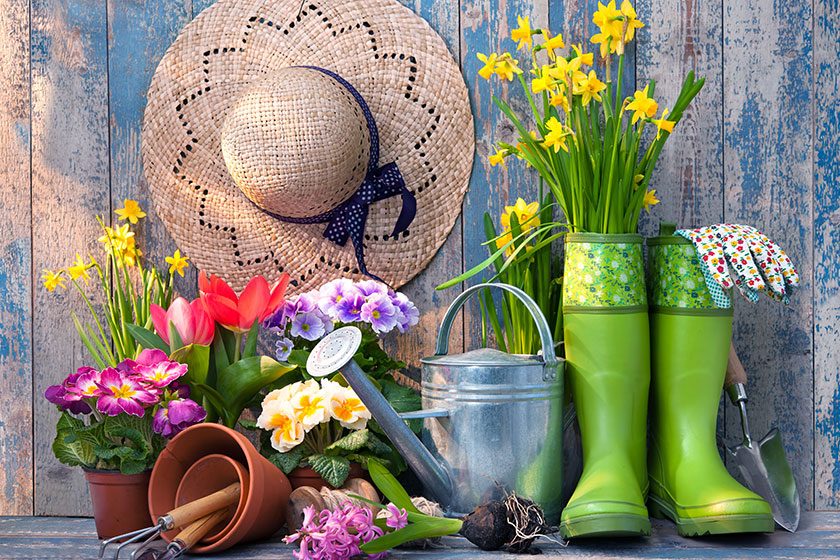Engaging in gardening offers numerous benefits, from physical activity to mental well-being. Yet, the physical demands of this hobby can become more challenging as we age. To keep gardening for seniors enjoyable and accessible, consider some practical adaptations and tools. Here are 10 ways to make gardening easier and more accessible for seniors.
Raised Garden Beds
Raised garden beds are a fantastic solution for seniors as they eliminate the need to bend or kneel, reducing strain on the back and knees. These elevated beds can be built to a height that is comfortable for the gardener, making it easier to plant, water, and harvest crops.
How to Set Up Raised Garden Beds
To set up raised garden beds, choose a sunny location and construct a frame using wood, metal, or other durable materials. Fill the beds with quality soil and compost to provide a fertile environment for plants. Raised beds can also be designed with seating ledges to provide a comfortable place to rest while working.
Lightweight Tools
Using lightweight, ergonomic tools can significantly reduce the physical strain associated with gardening. Tools made from materials like aluminum or plastic are easier to handle and less tiring to use.
Recommended Tools
Consider investing in tools specifically designed for seniors, such as those with cushioned grips and longer handles. Tools like lightweight trowels, pruners, and watering cans can make a big difference in the overall gardening experience.
Container Gardening
Container gardening is an excellent option for seniors, allowing them to garden without having to dig or weed large plots of land. Containers can be placed on tables, patios, or balconies, making them accessible for those with limited mobility.
Choosing the Right Containers
When selecting containers, opt for those with good drainage and appropriate size for the plants being grown. Self-watering containers can also be beneficial, reducing the need for frequent watering and making maintenance easier.
Accessible Pathways
Ensuring that garden pathways are safe and accessible is important for senior gardeners. Wide, level paths made from materials like gravel, brick, or paving stones can prevent trips and falls.
Adding Handrails and Seating
Adding handrails along pathways and incorporating seating areas throughout the garden can provide additional support and rest opportunities. This allows seniors to take breaks and enjoy their garden without overexerting themselves.
Adaptive Gardening Tools
Adaptive gardening tools are specifically designed to meet the needs of seniors and individuals with disabilities. These tools can help reduce physical strain and make gardening tasks more manageable.
Examples of Adaptive Tools
Some popular adaptive tools include long-handled weeders, kneeling benches with handles, and garden carts with seats. These tools can be found at most garden centers or specialty stores that cater to senior needs.
Vertical Gardening
Vertical gardening is an innovative way to maximize space and reduce the need for bending or kneeling. By growing plants vertically on trellises, walls, or vertical planters, seniors can easily tend to their gardens.
Setting Up a Vertical Garden
To set up a vertical garden, choose a sturdy support structure and select plants that thrive in vertical environments, such as climbing vegetables, herbs, and flowers. Vertical gardening can be done both indoors and outdoors, making it versatile and convenient.
Time-Saving Gardening Techniques
Mulching and having drip irrigation systems are some techniques you can incorporate.
- Mulching
Using mulch in garden beds can help retain moisture, reduce weeds, and minimize the need for frequent watering. Organic mulches like straw, wood chips, or compost are effective and environmentally friendly options. - Drip Irrigation Systems
Installing a drip irrigation system can automate watering, ensuring that plants receive consistent moisture without manual effort. These systems are easy to set up and can save a significant amount of time and energy.
Keeping Gardening Enjoyable and Accessible for Seniors
Gardening for seniors can be made easier and more accessible with thoughtful adaptations and the right tools. By implementing these tips, seniors can continue to enjoy the many benefits of gardening while minimizing physical strain and enhancing their overall experience. Raised garden beds, lightweight tools, and accessible pathways are just a few ways to support senior gardeners in their beloved hobby.
At our retirement community, we recognize the challenges that aging can bring to this cherished activity. That’s why we offer supportive services, adaptive tools, and accessible garden spaces designed specifically for our residents. We are committed to providing solutions that make gardening enjoyable and accessible for seniors.
Whether it’s through our carefully designed garden areas or the availability of senior-friendly gardening tools, we strive to create an environment where gardening remains a rewarding and stress-free activity. Contact us today to learn more about how we can help make your gardening experience more enjoyable.







